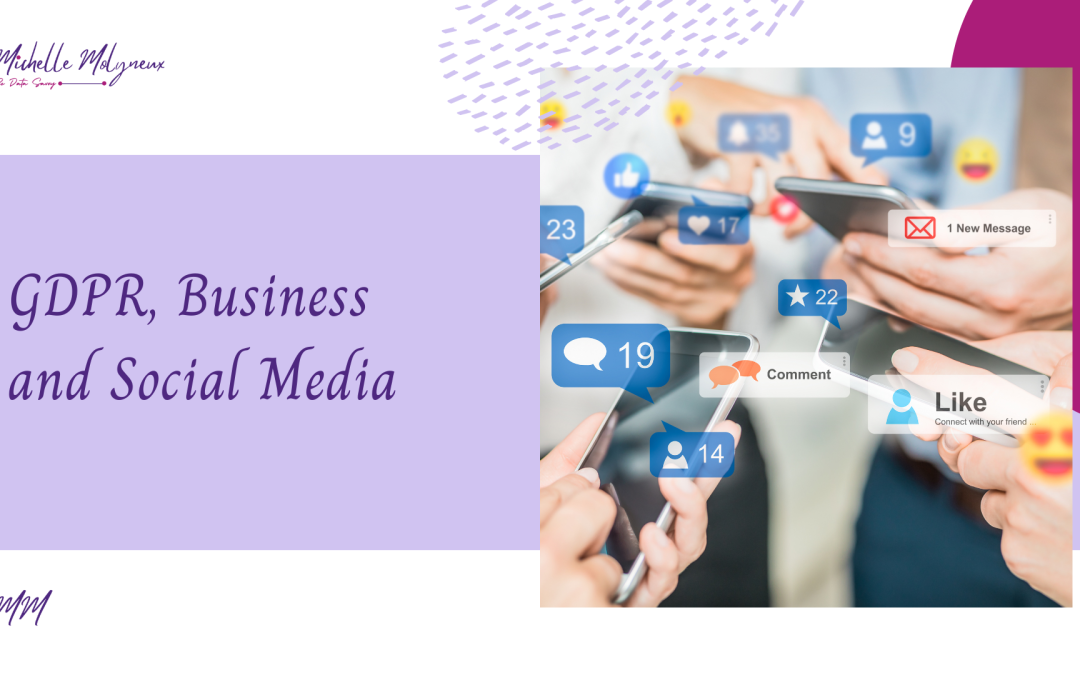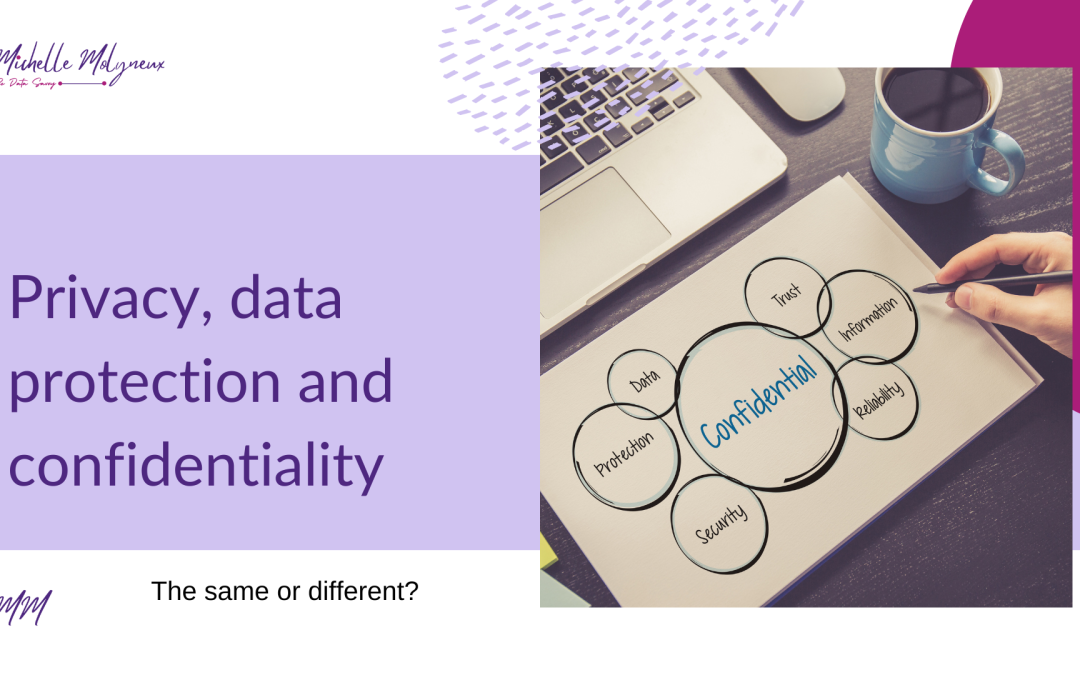
GDPR, Business and Social Media
In today’s digital world, social media has become an essential part of our daily lives, with millions of people using various platforms to connect with friends, family, and businesses. Social media platforms have revolutionised how people engage with each other and how businesses connect with their customers. However, concerns about data privacy have emerged with the growing use of personal data for advertising purposes. General Data Protection Regulation (GDPR) was introduced in 2018, significantly impacting how businesses use social media for marketing and advertising. This blog post discusses the impact of the regulations on business and social media.
Myths about GDPR and PECR
There are several myths that small businesses may have about social media, GDPR, and PECR. Here are five of them:
- People are communicating on social media so that I can contact them.
- GDPR and PECR only apply to large businesses, not small ones.
- Obtaining explicit consent for data collection is too difficult and time-consuming.
- Compliance with GDPR and PECR will harm my business’s marketing efforts.
- GDPR and PECR are just another government bureaucracy that doesn’t benefit consumers.
In reality, these myths are not accurate. People may be on social media, but businesses must know regulations like GDPR and PECR to avoid hefty fines. These regulations apply to all businesses, regardless of size. Obtaining explicit consent may require a little effort to set it up, but ensuring compliance and building trust with customers is necessary. Compliance with GDPR and PECR can improve marketing efforts by building customer trust. Finally, GDPR and PECR protect individuals’ rights and information. It is their data. Just because they may give it to you or put something on social media does not mean you can use it.
GDPR and PECR
While most people have heard of GDPR and data protection, PECR is its lesser-known cousin. GDPR has been established to guarantee transparency in businesses’ use of personal data. Hence, businesses must have a legitimate reason for processing personal data, gather only essential data, and use the data fairly and transparently. Such regulations considerably impact firms that depend on social media for their marketing and advertising activities. Companies must obtain explicit consent from individuals to use their data for marketing objectives. For this, businesses must be upfront about the data they are collecting, its intended use, and with whom it will be shared. This also means you can not collect data for one purpose and automatically transfer it to another without permission.
PECR stands for the Privacy and Electronic Communications Regulations. These regulations work with GDPR to protect individuals’ privacy rights regarding electronic communications. Essentially, PECR regulates how businesses can use electronic communications to market their products or services. This means that businesses must obtain consent before sending marketing emails or text messages to individuals. Small businesses must understand PECR, as non-compliance can result in significant fines. By following PECR regulations, small businesses can build trust with their customers and ensure they operate ethically and responsibly.
The Impact on Social Media Advertising
Implementing GDPR and PECR has changed how businesses use social media advertising. Social media platforms like Facebook, Instagram, and X rely on personal data to personalise advertising to specific audiences. This means that businesses must be transparent about how they use personal data for advertising and allow individuals to consent to targeted advertising AND have the opportunity to opt out at any time. Consequently, businesses are shifting towards more generalised advertising on social media platforms as they face challenges in targeting specific audiences.
PECR and GDPR protect individuals’ privacy rights concerning electronic communications and ensure transparency in businesses’ use of personal data. By following these regulations, businesses can build trust with their customers and operate ethically and responsibly. These laws emphasise the significance of data privacy and make businesses responsible for using personal data. In the future, businesses are expected to continue using social media for marketing and advertising but must comply with GDPR and be open about handling personal data.
How to Implement Explicit Consent for GDPR and PECR
When implementing explicit consent for GDPR and PECR, businesses must provide individuals with a clear option to explicitly consent to targeted advertising. During data collection, this can be done through a pop-up message or a checkbox. Businesses must also ensure that their privacy policy is current and clearly explains how personal data is collected, used, and shared. By implementing explicit consent, businesses can build customer trust and ensure compliance with GDPR and PECR regulations.
The Future of Business and Social Media
The implementation of GDPR and PECR laws has emphasised the significance of data privacy and has made businesses responsible for using personal data. As a result, there has been a move towards more honest and ethical business practices. In the future, it is expected that businesses will still use social media for marketing and advertising. Still, they must follow GDPR and be open about handling personal data. This will establish trust with consumers and prevent businesses from facing substantial penalties for non-compliance.
Conclusion
To sum up, implementing GDPR and PECR has dramatically affected how businesses utilise social media for marketing and advertising. Businesses must adhere to GDPR and be upfront about how they handle personal data. This helps to establish trust with customers and prevents businesses from facing severe penalties for non-compliance. Businesses must prioritise data privacy and ethical practices as our society becomes more data-focused. By doing so, businesses can build a positive reputation and ensure a long-lasting relationship with their customers.
We believe in supporting businesses to understand data protection and embed it into regular practice. To learn more, check out here, or why not book a free discovery call to see how we can support you?

